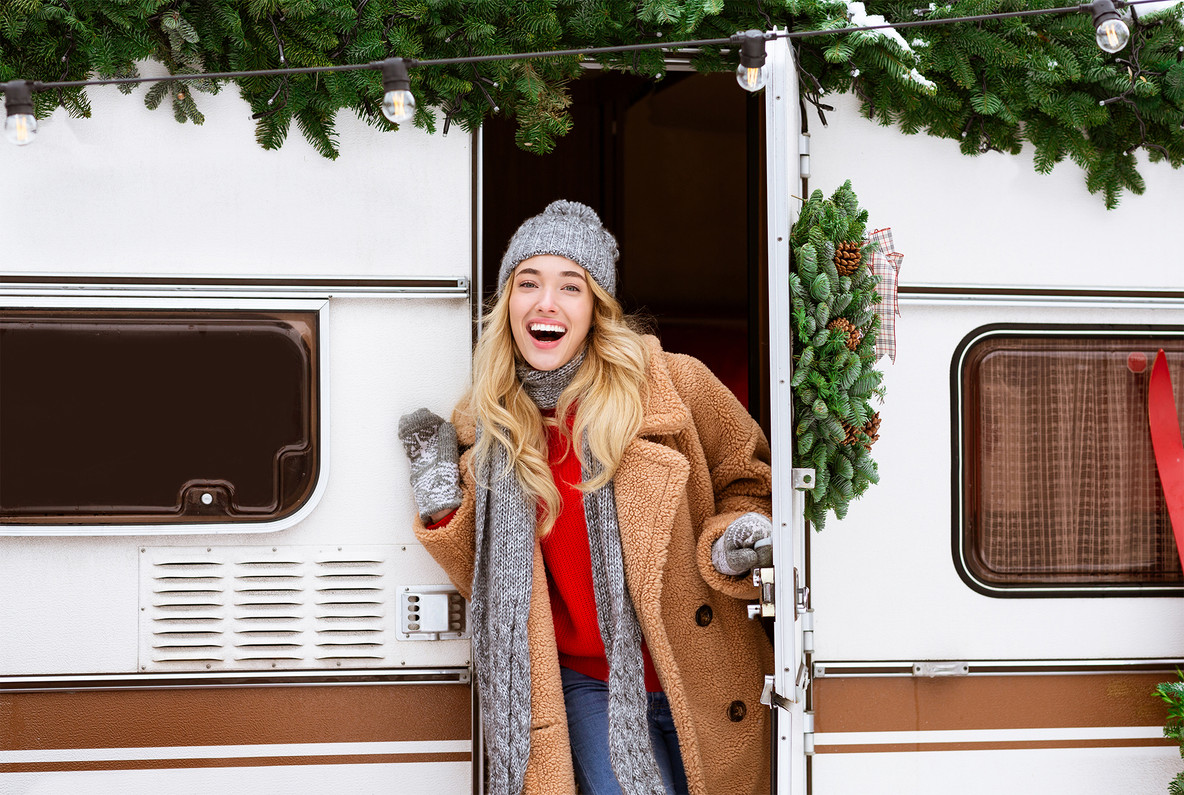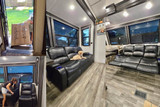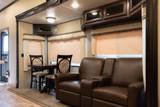3 Tips for Cold Weather Camping Success
Winter is finally knocking at the door. Whether you love it or hate it, the white stuff never seems to stop hardcore RVers from hitting their favorite campgrounds. There is something to be said for the crunch of snow under your boots, or a roaring campfire surrounded by snow-covered pine trees.
Before we dive too deeply into a Norman Rockwell painting, it’s important to keep in mind that cold weather camping is a little different. There are some definite do’s and don’ts to be aware of. So, over the next two weeks, we’ll make sure you’re fully prepared when it comes to the things you should (and shouldn’t!) be doing as you hit your favorite camping spots this season.
1. Check the Temperature
Always check the forecast for where you’ll be parking your RV. If the temperatures ever dip below freezing, even for a day or two, it’s imperative to make sure your RV is fully winterized. If you’re not prepared ahead of time, your waterline could end up freezing. That means more than inconvenient cold showers. It could end up causing a huge mess for your trip, and your wallet!
Additionally, you should use products and solution for your RV that are specifically designed for cold temperatures. That includes things like windshield wiper fluid that’s formulated for freezing temps!
2. Keep in the Heat
Get creative with different ways to keep your RV as insulated as possible. Cover all of the windows with thick, heavy curtains or drapes. Or, seal them with plastic film! You can also cut foam pieces to place in the ceiling vents. That will help to prevent any heat inside from escaping.
You should also make sure none of the weather stripping around your doors or windows is damaged. If it is, it needs to be replaced as soon as possible. Finally, you can skirt the outside of your RV. There are specialized products for this, but there are also a lot of DIY solutions to consider. Skirting your RV prevents cold air from getting underneath. As a result, it will stay warmer inside.
3. Use a Heated Water Hose
If you’re connecting to the campground’s water supply, consider using a heated water hose. This will help to ensure that nothing freezes up while you’re parked. It’s a simple solution, but it can make a big difference, especially if you’re camping in chillier locations.
Preparing Yourself for Winter Camping
Camping in your RV in colder temperatures might be more comfortable than “roughing it” in a tent. But that doesn’t mean you don’t need to prepare yourself and your mobile home for the conditions. When some people think about winterizing their RV, they think about the fact that they’re storing it away for the season. But, if you plan on using it in colder temperatures, it still needs to be winterized in order to stay protected (and in order to keep you safe and warm!).
By following these tips, as well as some of our “don’ts” next week, you should be fully prepared for whatever conditions seasonal camping might try to throw at you. Except snowballs. Always watch out for snowballs.
Recent Posts
-
Traveling to the RV Hall of Fame in Elkhart, IN
If you are traveling to Elkhart, IN to see the RV Hall of Fame, getting off the toll road at exit 96 …Nov 14, 2025 -
Best RV Air Conditioners of 2025: An Expert Guide From RecPro
Quick Answers Best overall RV air conditioner: RecPro 15K Quiet AC with Heat Pump (RP-AC3800) Best f …Oct 29, 2025 -
The Nuclear Nomads Expand Sofa with New Recliner Section Install
The Nuclear Nomads are a full time RV family living in south Florida. Andi and Joey value quality ti …Oct 24, 2025 -
Trailer Wiring Guide: How to Wire Your Trailer for Safety and Efficiency
Table of Contents 1. Common Types of Trailer Connectors 2. Trailer Wiring Diagrams: Color Codes and …Aug 20, 2024 -
How to Keep Your Pets Safe While Camping
RVing and camping are a great getaway from the hustle and bustle of work and the city and the day-to …Jul 02, 2024 -
Why Replace Your RV Furniture?
You may wonder when is the best time to replace your RV furniture. There is no one right answer to t …May 20, 2024







